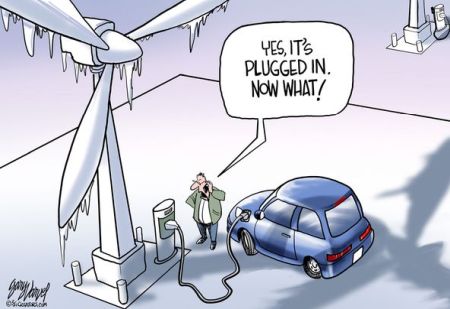Commentary
Amid the daily dose of doomsday scare tactics about climate change, written by wacko environmental activists, appeared a common-sense op-ed, “Climate-Change ‘Solutions’ That Are Worse Than the Problem,” in the Wall Street Journal.
Instead of someone telling us time is running out for our planet, the author, Jason De Sena Trennert, Chairman and CEO of Stratega, an investment strategy, economic, and policy firm, writes of the political assault on fossil fuels.
Reading his perceptive opening paragraph – “If you can afford a Tesla, you probably find it hard to imagine that there are some 3.5 billion people on Earth who have no reasonably reliable access to electricity. Even less obvious may be the way rich countries ‘pursuit of carbon neutrality at almost any cost limits economic opportunities for the world’s poor and poses serious geopolitical risks to the West.” – I thought, finally, someone with some common sense.
Commenting on those who spend untold hours discussing ways to mitigate the impact of climate change, he wrote that “they’ve likely never heard of one simple, incontrovertible fact: The widespread exploration and production of fossil fuels that started in Titusville, Pennsylvania, not quite 170 years ago, has done more to benefit the lives of ordinary people than any other technological advance in history.”
Relating how fossil fuels improved the lives of people over the years, from heating their homes in the winter to increasing crop yields with fuel-based fertilizers, making possible their ability to travel, which opened up access to education, commerce, and vital services, he believes, and I agree, there has been, and remains, a strong correlation between the use of fossil fuels and life expectancy.
Reading the author’s statement that limiting the availability of fossil fuels would cut off many of the world’s poor from its benefits, I recalled how we are pouring billions of dollars in climate mitigation projects in underdeveloped countries. For what? The potential of an existential crisis in a decade.
While the radicals believe fossil fuels pose a danger to the environment, “One would be hard-pressed to find a product more dependent on resources from extractive materials than the electric car,” says De Sena Trennert.
Environmental activists are so obsessed with fossil fuel consumption that they are unaware of the not-so-eco-friendly mining that will be required to provide electric cars with four times as much copper as in an internal combustion engine.
And, of course, they refuse to come to terms with the fact that wind and solar alone will be unable to provide sufficient power generation to charge all those electric cars.
“Sadly, environmentalism has grown into a secular religion in which reasonable debate is regarded as heresy,” De Sena Trennert says, while suggesting that the issue can be solved without heavy-handed government intervention with questionable data.
Rather than retarding the production of fossil fuels, the free market should encourage human ingenuity to further develop all sorts of energy sources without ridiculous deadlines. Deadlines that are as impossible as predicting climate doomsday.
“The future of the auto industry is electric,” President Biden says, adding “there’s no turning back.” The president of the United States should not be picking winners and losers in industry.
In my opinion, the CEOs of Ford, Chrysler and General Motors, who seem to have agreed with a goal of having 40 to 50 percent of their new vehicle sales to be electric by 2030, are making a big mistake relinquishing their market decision-making to a man who has never made a payroll in his life. Mark my word, with total electric car production at just 2.6 percent today, stockholders will be keeping an eye on their company’s performance over the next eight years.
That same man, with the stroke of a pen on his first day in office, ended our energy independence by cutting off our oil production. And that same man, in a symbolic Earth Day move on April 22, 2021 set a goal for the United States of reaching 100 percent carbon pollution-free electricity by 2035 by merely issuing a press release declaring it. Who agreed to that?
Now, more than ever … may God continue to bless the United States of America.






